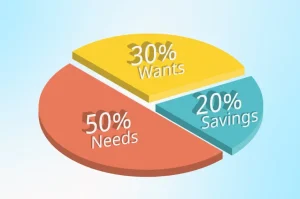The financial management of a small income can be overwhelming; however, it doesn’t need to cause anxiety. If you have the right mindset and approach, you can make the perfect budget that fits their personal financial situation, regardless of how tight it may appear. This guide will take you through steps that will assist you in budgeting effectively to save money and attain financial stability.
Understanding Your Income and Expenses
To budget, first know your income and where it goes. Track all your income, including employee pay, freelance work, and government aid. Thereafter, record all of your expenses, starting with utilities and rent and going to transportation and groceries. It’s crucial to monitor the monthly fluctuations in the costs of variable items and to be mindful of smaller expenses like coffee or subscriptions, which can quickly accumulate. A thorough assessment of your financial situation will be the base to build your budget.
Creating a Realistic Budget
Once you’ve got an accurate picture of your financial situation, it’s time to make an achievable budget. Please ensure that you prioritize allocating your funds to the most essential areas, such as food, housing, transport, and other necessities. Set aside some savings, even if it’s just an insignificant amount. If you are able, create an area for discretionary expenses so that you don’t feel completely confined. It is important to design a budget that fits your requirements and lifestyle while making sure you’re within your budget. Be aware that a budget should help you, not cause you to feel deprivation.
Strategies for Saving Money
Even with modest earnings, you can find methods to save money without having to sacrifice too much. One method is to prioritize the needs over the wants and differentiate between the two when you make purchases. Find discounts, apply coupons, and make use of community-based programs that provide affordable or free services. Cooking at home in lieu of eating out can save substantial amounts of money over the course of time. Think about buying secondhand clothes or household products to stretch your money further. Small changes in your spending can add up to create a significant impact on your overall savings.
In the face of unexpected expenses
Unexpected expenses are part of life and can sabotage even the best-planned budget. Medical bills, car repairs, or sudden changes in employment could cause financial stress. Try to establish a modest emergency fund to prepare for such situations. Begin by saving just 10 or 20 dollars each week, if it’s possible. In time, this fund can serve as a security measure. If an emergency arises and you’re unprepared, consider setting up payment plans or seeking assistance from the community to alleviate the financial burden. Being calm and vigilant when faced with unexpected situations is critical for maintaining your financial security.
Maintaining Motivation and Avoiding Burnout
A budgeting plan for a limited income is a challenge. It’s also crucial to keep your focus and avoid burning out. Be grateful for small financial successes throughout the process regardless of whether you’re repaying a debt or achieving a savings goal. Be patient with yourself and realize that setbacks do happen. If you can’t pay your bills in a month, don’t quit; just adjust your budget. Always remind yourself of the benefits of budgeting, such as decreased stress and financial freedom, to keep you on track.
Seeking Support and Resources
It is not necessary to plan a budget for a small income all by yourself. There are numerous options to assist you with your budgeting. Local community groups may provide free financial counseling, discounts on utility bills, and help with meals. Budgeting tools online, like budgeting applications and free budget templates, will help monitor your expenditures and figure out the cost of your expenses. There are forums and social media networks that allow you to connect with other people in similar situations to share advice, exchange tips, and seek support. Helping others doesn’t cause weakness; it’s an effective step towards creating a more secure financial future.
Building a Sustainable Financial Future
The process of budgeting for a limited income can be difficult, but it’s not impossible. By analyzing your earnings and expenses, establishing a realistic budget, and using smart saving strategies, you can gain control of your budget. Make sure you are prepared for unexpected expenses, remain focused, and look for the resources and help of your community. In time, these strategies can enhance your financial well-being and give you tranquility. You can attain financial stability, regardless of the amount of money you have available.
FAQs
1. How do I make an appropriate budget when my income fluctuates every month?
Make your budget based on your monthly average income by using your lowest monthly earnings as the basis. Prioritize covering the most basic expenses first. Then, modify discretionary spending according to the fluctuation in your income.
2. What can I do if I don’t save a lot right now?
Even tiny sums add up in time. Begin with the minimum amount you can manage, even if it’s just as small as $5 per week. Gradually increase the amount you save as the financial condition improves.
3. Do I need to pay off the debt first, or do I save up?
If you are able, consider doing both at the same time. Set aside a portion of high-interest debt while also setting aside an amount for savings so that you don’t rely on credit for emergencies.
4. Are budgeting apps worth it?
Budgeting apps can assist in the process of tracking your expenses and income. A few of the most popular choices are Mint, YNAB, and PocketGuard. Many apps are available for free or have basic features for no cost.
5. How can I keep to my budget?
Consistency is the key. Check your budget on a regular basis. Keep track of your expenses every day as well as weekly and make adjustments according to the need. The joy of celebrating small financial victories will help keep you focused.




